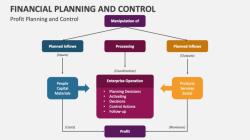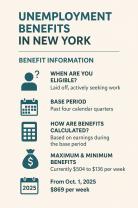How do I start trading stocks?
Starting to trade stocks as a beginner can be both exciting and potentially profitable, but it's important to approach it with careful planning and education. Here's a step-by-step guide on how to start trading stocks:
Educate Yourself:
- Before you start trading, it's crucial to understand the basics of the stock market, how it works, and the different types of stocks (e.g., common, preferred).
- Learn about fundamental and technical analysis, which are two common approaches to analyzing stocks.
- Familiarize yourself with key financial terms like earnings per share (EPS), price-to-earnings (P/E) ratio, and market orders.
Set Clear Goals and Risk Tolerance:
- Determine your investment goals. Are you looking for short-term gains or long-term wealth accumulation?
- Assess your risk tolerance. How much can you afford to lose without affecting your financial well-being?
Create a Trading Plan:
- Develop a trading plan that outlines your goals, strategies, and risk management techniques.
- Decide how much capital you can allocate to trading and how you'll diversify your investments.
Choose a Brokerage Account:
- Research and select a reputable online brokerage platform. Look for low fees, a user-friendly interface, and educational resources.
- Open an account, provide the necessary identification and financial information, and fund your account.
Research Stocks:
- Conduct thorough research on the stocks you're interested in. Look at company financials, news, and industry trends.
- Consider using stock screeners and financial news sources to identify potential investments.
Practice with a Demo Account:
- Many brokerage platforms offer demo accounts with virtual money. Practice trading on these accounts to get a feel for the platform and build confidence.
Start Small:
- Begin with a small amount of capital, especially if you're new to trading. This helps you learn without risking too much.
Place Your First Trade:
- Log into your brokerage account and place your first trade. You can choose between market orders (buy or sell at the current market price) or limit orders (buy or sell at a specific price).
- Double-check your order details before confirming.
Monitor and Learn:
- Keep a close eye on your investments. Monitor the performance of your stocks and the overall market.
- Continuously learn and adapt your trading strategies based on your experiences and market conditions.
Practice Risk Management:
- Set stop-loss orders to limit potential losses.
- Avoid putting all your capital into a single stock. Diversify your portfolio to spread risk.
- Don't let emotions dictate your trading decisions. Stick to your plan.
Stay Informed:
- Stay updated on market news and events that could impact your investments.
- Consider subscribing to financial newsletters or following reputable financial news websites.
Seek Professional Advice:
- If you're uncertain about your trading decisions or need personalized advice, consult with a financial advisor.
Remember that trading stocks carries risks, and there are no guarantees of profits. It's essential to invest time in learning, start small, and approach trading with a long-term perspective. Over time, as you gain experience and knowledge, you can refine your strategies and make more informed decisions.
Starting Your Stock Trading Journey: Step-by-Step Guide
- Educate yourself. Before you start investing in stocks, it's important to understand the basics of how the stock market works and the risks involved. There are many resources available online and in libraries that can help you learn more.
- Choose a brokerage firm. Once you have a basic understanding of the stock market, you need to choose a brokerage firm. This is the company that will handle your trades and hold your investments. There are many different brokerage firms to choose from, so it's important to compare their fees and services before you open an account.
- Fund your account. Once you've chosen a brokerage firm, you need to deposit money into your account before you can start trading. You can do this by linking your bank account or by mailing a check.
- Pick a stock. Once your account is funded, you can start picking stocks to buy. There are many different factors to consider when choosing a stock, such as the company's financial health, its industry, and its management team. It's important to do your research before you buy any stock.
- Place a trade. Once you've chosen a stock, you need to place a trade to buy it. You can do this through your brokerage firm's online trading platform. When you place a trade, you will need to specify how many shares you want to buy and the price you are willing to pay.
- Monitor your investment. Once you've bought a stock, it's important to monitor your investment and make adjustments as needed. You should keep an eye on the company's financial performance and the overall stock market. If the company's performance declines or if the stock market starts to fall, you may want to sell your shares.
Embarking on a Stock Trading Adventure: Beginner's Roadmap
- Start small. Don't invest more money than you can afford to lose. It's better to start small and gradually increase your investment over time.
- Invest for the long term. Don't try to time the market. It's impossible to predict when stock prices will go up or down. Instead, focus on investing in companies that have a strong track record and that you believe in for the long term.
- Diversify your portfolio. Don't put all of your eggs in one basket. Invest in a variety of different stocks to reduce your risk. You can also invest in other asset classes, such as bonds and real estate.
- Don't be afraid to sell. If a stock's performance declines or if you no longer believe in the company, don't be afraid to sell it. It's better to sell at a loss than to hold on to a losing investment.
Mastering Stock Trading Basics: Tips for Novice Traders
- Do your research. Before you buy any stock, it's important to do your research and understand the company's business, its financial performance, and its industry. You can find this information on the company's website, in SEC filings, and in financial news articles.
- Have a trading plan. Before you start trading, it's important to have a trading plan in place. This plan should outline your investment goals, your risk tolerance, and your entry and exit criteria for each trade.
- Use stop-loss orders. A stop-loss order is an order to sell a stock at a specific price, regardless of the market price. This can help you limit your losses on a losing trade.
- Don't overtrade. Overtrading is one of the biggest mistakes that new traders make. It's important to be patient and wait for the right opportunities to trade.
- Manage your emotions. Trading can be emotional, but it's important to keep your emotions in check. Don't make trading decisions based on greed or fear.
Stock trading can be a rewarding experience, but it's important to remember that it's also risky. It's important to educate yourself and to have a trading plan in place before you start trading.













